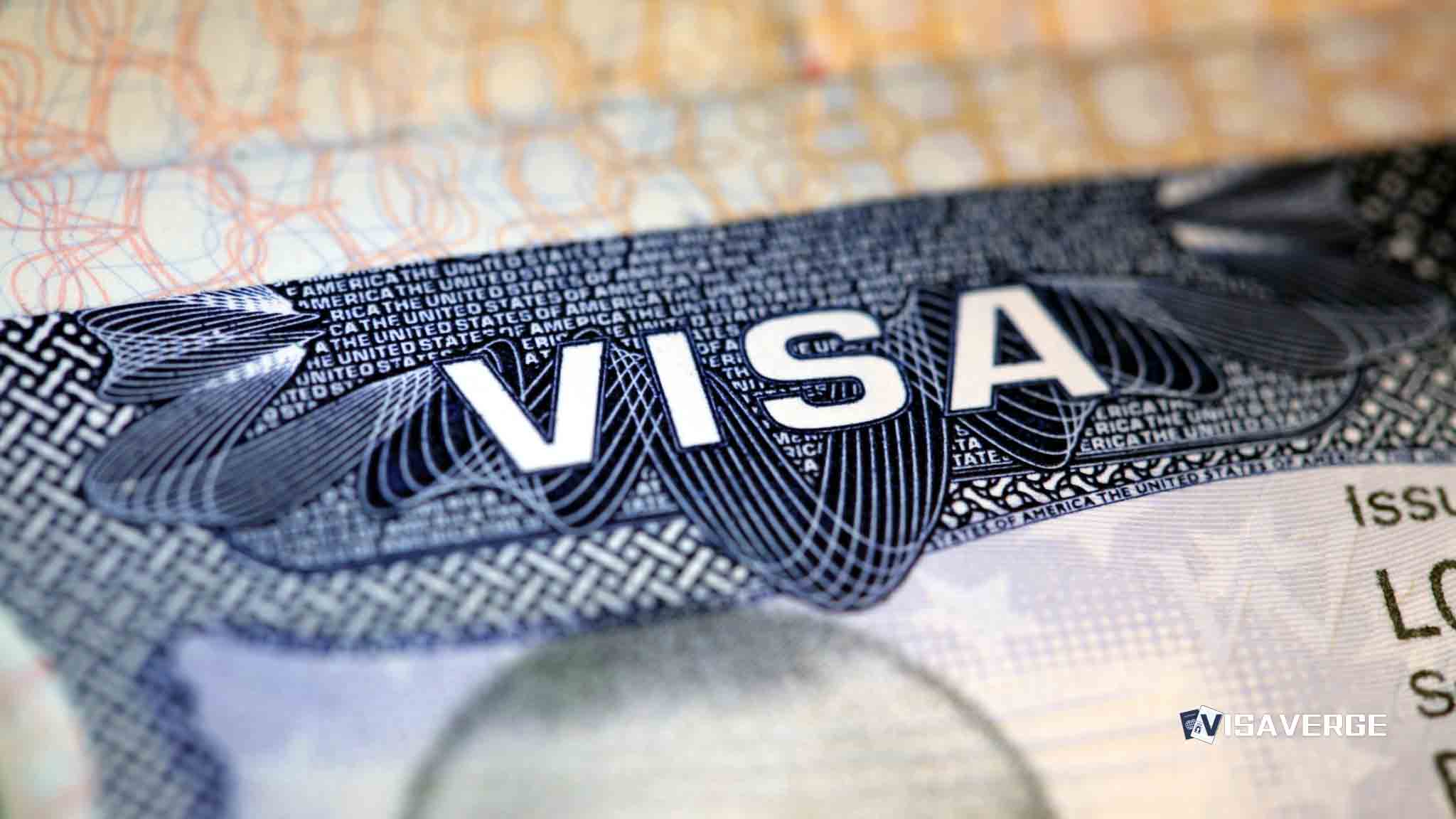Key Takeaways
• OBBBA may cut Medicare for many lawfully present immigrants one year after enactment in 2026.
• The bill ends ACA premium tax credits for green card holders after a five-year wait.
• OBBBA could penalize states for funding Medicaid and CHIP coverage for immigrant children and pregnant women.
As of July 2025, the United States 🇺🇸 Congress is considering the One Big Beautiful Bill Act (OBBBA), a sweeping piece of legislation that could reshape health coverage for immigrants across the country. Introduced in the U.S. House of Representatives in June 2025, OBBBA has sparked concern among immigrant communities, healthcare advocates, and state officials. The bill’s provisions, especially those related to Medicare eligibility and immigrant health coverage, could prompt states to tighten eligibility rules or even cut coverage for lawfully present residents. Here’s what you need to know about who is affected, what changes are proposed, when these changes could take effect, where the impacts will be felt, why this matters, and how it could play out for millions of immigrants and their families.
What Is the One Big Beautiful Bill Act (OBBBA)?

The One Big Beautiful Bill Act is a proposed law that aims to change several federal programs, including those that provide health coverage to immigrants. Lawmakers say the bill is designed to reduce federal spending on healthcare, but critics warn it could leave many immigrants—some of whom have lived and worked in the United States 🇺🇸 for years—without affordable health insurance.
Who Is Affected by OBBBA’s Health Coverage Changes?
The bill targets a wide range of immigrants, including:
- Lawfully present immigrants: This group includes green card holders (lawful permanent residents), refugees, asylees, people with Temporary Protected Status (TPS), survivors of trafficking and domestic violence, and others who have legal permission to live in the United States 🇺🇸.
- Children and pregnant women: Many states currently use their own funds to provide Medicaid or Children’s Health Insurance Program (CHIP) coverage to lawfully present immigrant children and pregnant women.
- Special groups: Certain immigrants from Cuba, the Federated States of Micronesia, and the Republic of the Marshall Islands are also affected, though some may still qualify for certain benefits under the bill.
Key Provisions: How OBBBA Changes Immigrant Health Coverage
1. Medicare Eligibility Restrictions
What’s Changing?
OBBBA proposes to bar many immigrants from qualifying for Medicare, even if they have worked and paid into the system for years. This includes people with TPS, refugees, asylees, trafficking survivors, and domestic violence survivors. Under the bill, these groups would lose Medicare coverage one year after the law takes effect.
Why Does This Matter?
Medicare is a federal health insurance program mainly for people aged 65 and older or those with certain disabilities. Many immigrants have relied on Medicare after meeting work requirements. If OBBBA becomes law, these individuals would have to find other coverage options, such as private insurance or plans through the Affordable Care Act (ACA) Marketplace.
What Are the Consequences?
– Higher costs: Without Medicare, affected immigrants may have to buy private insurance, which can be much more expensive.
– Limited options: Many will not qualify for financial help (premium tax credits) to lower the cost of ACA plans.
– Risk of being uninsured: Some may go without any coverage, leading to worse health outcomes and higher emergency room use.
2. ACA Premium Assistance Limits
What’s Changing?
Currently, many lawfully present immigrants can get help paying for health insurance through the ACA Marketplace. OBBBA would end this help (premium tax credits) for green card holders after a five-year waiting period. Other groups, such as certain Cuban immigrants and those from Micronesia and the Marshall Islands, would still qualify for premium tax credits.
Why Does This Matter?
Premium tax credits make health insurance more affordable for people with low or moderate incomes. Without this help, many immigrants may not be able to afford coverage.
What Are the Consequences?
– Loss of financial help: Green card holders would have to pay the full price for ACA plans after five years.
– Possible coverage gaps: Some may drop their insurance because it becomes too expensive.
3. State-Level Medicaid and CHIP Coverage
What’s Changing?
Some states use their own money to provide Medicaid or CHIP coverage to lawfully present immigrant children and pregnant women. OBBBA could penalize states for offering this coverage, pushing them to end these programs.
Why Does This Matter?
Medicaid and CHIP are important for children and pregnant women who need regular medical care. State-funded programs have helped fill gaps left by federal rules.
What Are the Consequences?
– Fewer covered children and mothers: States may stop offering Medicaid or CHIP to immigrant children and pregnant women.
– Worse health outcomes: Without coverage, families may delay or skip needed care.
4. Postpartum Coverage at Risk
What’s Changing?
Some states use CHIP Health Services Initiatives to extend postpartum coverage to immigrant women. OBBBA could force states to end this coverage due to possible penalties.
Why Does This Matter?
Postpartum care is vital for new mothers’ health. Losing this coverage could put mothers and babies at risk.
5. Fear and Uncertainty Among Immigrants
What’s Changing?
Even before OBBBA, many immigrants have been afraid to use health programs because of worries about how it might affect their immigration status. Although President Biden reversed the strict “public charge” rules from the previous administration, OBBBA’s new restrictions could increase fear and confusion.
Why Does This Matter?
When immigrants avoid health coverage, they are less likely to get preventive care, leading to more serious health problems and higher costs for everyone.
Why Are States Likely to Tighten Eligibility or Cut Coverage?
OBBBA’s changes would shift more costs to states. With less federal support and possible penalties for covering certain immigrants, states may:
- Tighten eligibility rules: Make it harder for immigrants to qualify for state health programs.
- Cut coverage: End programs that use state funds to cover immigrants, especially children and pregnant women.
- Reduce outreach: Spend less on helping immigrants sign up for coverage, leading to lower enrollment.
States that want to keep coverage for immigrants may have to find new funding sources or face budget shortfalls. Some may try to challenge the law in court, but this process can take years.
What Do Experts and Advocates Say?
Healthcare Advocates
Healthcare advocates warn that OBBBA will hurt vulnerable immigrants the most. Many of these individuals have fled violence, persecution, or disasters in their home countries. They often work in essential jobs and pay taxes, but may not have access to employer-based insurance.
Advocates argue that cutting health coverage will:
- Increase health disparities: Immigrants already face barriers to care. Losing coverage will make it worse.
- Raise costs for states: When people lose coverage, they often delay care until it becomes an emergency, which is more expensive for hospitals and states.
- Harm public health: Uninsured people are less likely to get vaccines and regular check-ups, which can lead to outbreaks of preventable diseases.
Policy Analysts
Policy analysts point out that while OBBBA aims to save federal money, it may cost more in the long run. Emergency room visits are much more expensive than preventive care. States may also face higher costs if more people become uninsured.
As reported by VisaVerge.com, analysts also note that the bill could create confusion and administrative burdens for states, as they try to adjust their programs to comply with new federal rules.
How Might States Respond?
States have several options, but each comes with challenges:
- Find new funding: Some states may try to use their own money to keep coverage for immigrants, but this can be hard, especially for states with tight budgets.
- Legal challenges: States or advocacy groups may sue to block parts of OBBBA, arguing that it unfairly targets immigrants or oversteps federal authority.
- Policy changes: States may redesign their programs to fit within the new rules, but this could mean covering fewer people or offering fewer benefits.
Some states with large immigrant populations, like California and New York, have a history of protecting immigrant health coverage. Others may be less willing or able to fill the gaps left by federal cuts.
What Should Immigrants and Their Families Do?
If you or your family could be affected by OBBBA, here are some steps to consider:
- Stay informed: Follow updates from trusted sources, such as your state health department or organizations like the Kaiser Family Foundation.
- Check your coverage: Review your current health insurance and see if you might be affected by the proposed changes.
- Seek help: Many community organizations offer free or low-cost help with health insurance questions.
- Contact your representatives: Let your elected officials know how these changes could affect you and your community.
For official information about Medicare eligibility and health coverage options, visit the Centers for Medicare & Medicaid Services (CMS) website.
Background: How Did We Get Here?
Immigrant health coverage in the United States 🇺🇸 has always been a patchwork of federal and state rules. Over the years, Congress has passed laws that limit or expand access to programs like Medicaid, CHIP, and Medicare for different groups of immigrants.
- 1996 Welfare Reform: The Personal Responsibility and Work Opportunity Reconciliation Act (PRWORA) restricted access to federal benefits for many immigrants, but allowed states to use their own funds to cover some groups.
- Affordable Care Act (ACA): The ACA expanded coverage for many, but still left some immigrants out, especially those without legal status.
- State Innovations: Some states have gone further, using their own money to cover more immigrants, especially children and pregnant women.
OBBBA represents a major shift, as it would roll back some of these state efforts and tighten federal rules even more.
Implications for Stakeholders
Immigrants
- Loss of coverage: Many could lose access to affordable health insurance.
- Higher costs: Without help paying for insurance, some may have to pay much more or go without coverage.
- Fear and confusion: Changing rules can make it hard to know what benefits are available.
States
- Budget pressures: States may have to spend more of their own money or cut programs.
- Administrative challenges: Adjusting to new rules takes time and resources.
- Legal risks: States that try to keep coverage may face penalties or lawsuits.
Healthcare Providers
- More uninsured patients: Hospitals and clinics may see more patients without insurance, leading to higher uncompensated care costs.
- Public health risks: Gaps in coverage can lead to outbreaks of diseases and higher community health costs.
Employers
- Workforce health: Many immigrants work in essential industries. Losing health coverage can affect their ability to work and stay healthy.
Looking Ahead: What’s Next for OBBBA and Immigrant Health Coverage?
The One Big Beautiful Bill Act is still moving through Congress. Lawmakers may change the bill before it becomes law, and states are watching closely to see what happens. If OBBBA passes, the changes to immigrant health coverage could take effect as soon as one year after enactment.
- Congressional debate: Lawmakers may propose amendments to soften the impact on immigrants.
- State action: Some states may try to protect coverage, while others may cut programs.
- Legal battles: Courts may be asked to decide if parts of OBBBA are legal.
Immigrants, advocates, and state officials will need to stay alert and be ready to respond to changes.
Where to Get More Information
If you have questions about how OBBBA could affect your health coverage, you can:
- Visit the Centers for Medicare & Medicaid Services (CMS) for official updates on Medicare eligibility and health insurance options.
- Check with your state’s health department for local programs and resources.
- Read detailed policy analysis from organizations like the Kaiser Family Foundation.
- Seek help from community groups that specialize in immigrant health coverage.
Final Thoughts
The One Big Beautiful Bill Act could bring major changes to immigrant health coverage and Medicare eligibility in the United States 🇺🇸. By limiting access to federal programs and penalizing states that use their own funds to cover immigrants, OBBBA may force many lawfully present residents to pay more for health insurance or lose coverage altogether. The bill’s future is still uncertain, but its potential impact is already causing concern among immigrants, healthcare providers, and state officials. Staying informed and prepared will be key for those who may be affected.
For ongoing updates and expert analysis, VisaVerge.com reports that following the legislative process and understanding your rights will help you make the best decisions for your health and your family’s future.
Learn Today
One Big Beautiful Bill Act (OBBBA) → A proposed 2025 U.S. law aiming to reduce federal healthcare spending by limiting immigrant benefits.
Medicare → Federal insurance primarily for people aged 65+ or with disabilities, covering hospital and medical expenses.
Lawfully Present Immigrants → Immigrants legally authorized to live in the U.S., including green card holders, refugees, and TPS recipients.
ACA Premium Tax Credits → Financial help that lowers monthly health insurance costs for eligible low- to moderate-income people via the ACA marketplace.
Medicaid and CHIP → Government health programs providing coverage to low-income individuals, including children and pregnant women.
This Article in a Nutshell
The One Big Beautiful Bill Act threatens immigrant health coverage, restricting Medicare and ACA benefits, and penalizing states. If passed in 2025, millions risk costly insurance loss and reduced access to care. Immigrant communities and states face tough choices amid potential coverage cuts and increased health disparities nationwide.
— By VisaVerge.com





